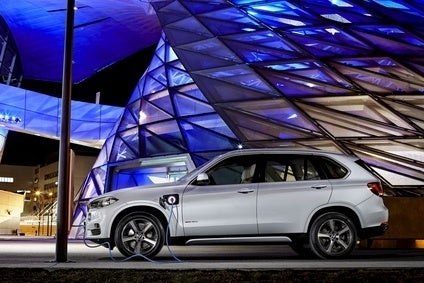
The next generation of BMWs will increasingly rely on electrification and will be fully connected to the outside world to meet EU consumption and emissions targets, improve safety and comfort and reduce the stress of driving in traffic, said the company’s vice-president for EfficientDynamics, Marcus Bollig.
Only this week, the group announced it would launch its second plug-in hybrid, based on the X5, later this year and this would be followed by a hybrid 3 Series in 2016 and an electrified version of the 2 Series Active Tourer at a later date to be announced.

Discover B2B Marketing That Performs
Combine business intelligence and editorial excellence to reach engaged professionals across 36 leading media platforms.
“We will put our best concepts into series production,” said Bollig.
“In future our cars will have advanced electrification allowing local emissions free driving and instant torque. Autonomous driving will improve safety and comfort and reduce accidents, consumption and stress. And the car will become part of the internet, setting new standards in continuous connectivity which is natural and seamless,” added Bollig.
Electrification will become more affordable while the price of combustion engines will increase to enable them to meet the next stage of emissions legislation, he said.
“Price wise, our electrified vehicles will be on the same level as models with combustion engines.
“The energy density of lithium ion batteries will double in the next five years and the cost per kilowatt hour will decrease. E-mobility will become more affordable and useful.”
On the future of connectivity, Bollig said: “Digital processing, flash capacity and data transfer is becoming faster and will increase by a factor of 10 every four years. Today we are exchanging 1Kb of data per year into the vehicle.”
The head of Mini, Rolls-Royce, Motorrad and aftersales, Peter Schwarzenbauer, said the two car divisions under his control would also be swept up into the drive for electrification but they would not follow the Mini E test fleet of 2009-11 or the Rolls-Royce 120EX concept, also from 2011.
“We are working on electrification for Mini but we have not yet decided how to do it. The challenge is in deciding the right amount of batteries in a car of such small size,” said Schwarzenbauer.
“Putting the battery in the back seat is not a technical solution which is viable.”
“A purely electric Rolls-Royce will not happen with current battery technology – we would need a couple of hundred kilogrammes of batteries. But a plug in hybrid with our very smallest and very biggest cars? That could be logical.”






